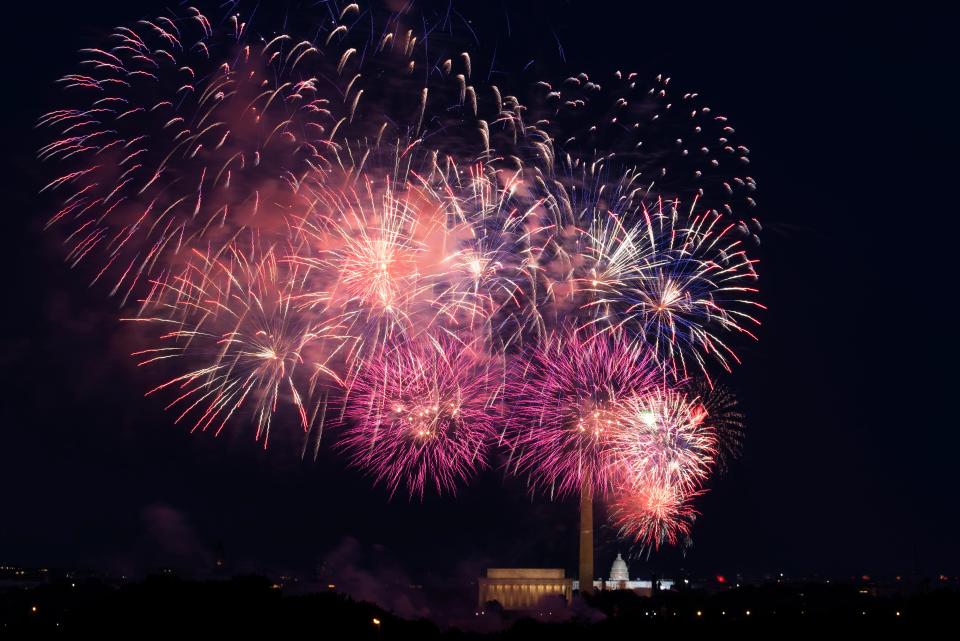America's 250th birthday: We're getting ready to celebrate milestone of our independence
We celebrate freedom in more ways than one this Fourth of July. After forgoing our traditions last year, we return to more familiar July 4th celebrations this year with picnics, parades, barbecues and fireworks.
We also mark the official launch of America250, the multiyear commemoration of America’s 250th anniversary of independence.
In 2026, when we celebrate 250, freedom will ring differently for today’s teenagers. They will be full-fledged voters – making their voices heard and weighing in on issues in a way Americans hold sacred.
USA TODAY's opinion newsletter: Get the best insights and analysis delivered to your inbox.
As an adult who grew up much differently than today’s youth, I often wonder: Do kids actually care about American civics and history? The answer: They certainly do.
The America250 Foundation recently released results from a survey of 1,249 American adults and 327 teens about their sentiments on the state of our union and outlook on the future of our democracy.
As the conversation swirls around the best way to teach civics, many may be surprised to learn that more than 70% of teens think American history, civics and government is important. And they appear realistic about what they know and don’t know, unlike adults, who seem to overestimate their knowledge.

The poll found that while 67% of adults consider themselves knowledgeable about American history and 69% feel they are knowledgeable about government, they think only 15% of their peers are knowledgeable about American history and 13% know about our government.
Teens want to learn nation's history
Teenagers rate themselves and others more equitably, indicating they realize they have more to learn about American history (54%) and American government (45%) but don’t assume they know more than their peers whom they rank on par with themselves.
Teens also express a clear desire to learn about topics that link the past to their current reality, such as non-white history (46%), voting rights (34%) and the Civil War (30%). The Great Depression and World War II also rank highly.
At the heart of every Fourth of July is an opportunity to reflect on our nation’s founding, while looking with hope to the future. Encouragingly, 77% of teens want to help America become an even better place to live. And 66% want our 250th commemoration to focus on what unites us, while holding space for what makes us unique.
Our nation’s youth remind us that our founding principles still matter, even when we have not always lived up to our ideals. More than 60% of teens say they are inspired by the first sentence in our Constitution and wish to reflect on the ways our country has succeeded and where it has faltered in creating "a more perfect Union."
Shared values are sign of hope
The fact that teens still value traditional American ideals of hard work, optimism and unity should give us all hope that our daring experiment in democracy will endure.
Of course, the challenge of realizing these ideals and securing the continued durability of our nation is never passive. It requires commitment from all Americans, young and old.
As an American, I am passionate about the opportunity to facilitate that. It’s one of the reasons I am proud to be part of the U.S. Semiquincentennial Commission tasked with planning and executing the America250 effort for all Americans.
Our country’s teens indicate they are willing to step into a more active role as citizens. But there is still work to be done if we want to capture their imaginations.
According to our research, teens are the least enthusiastic of any age group about the prospect of a 250th celebration. We have five years to unleash their American spirit in ways that honor our past and help them understand their integral place in our future.
The countdown to 2026 begins.
Daniel M. Dilella is chairman of the U.S. Semiquincentennial Commission.
You can read diverse opinions from our Board of Contributors and other writers on the Opinion front page, on Twitter @usatodayopinion and in our daily Opinion newsletter. To respond to a column, submit a comment to letters@usatoday.com.
This article originally appeared on USA TODAY: Here's what American teens think about our history and government

